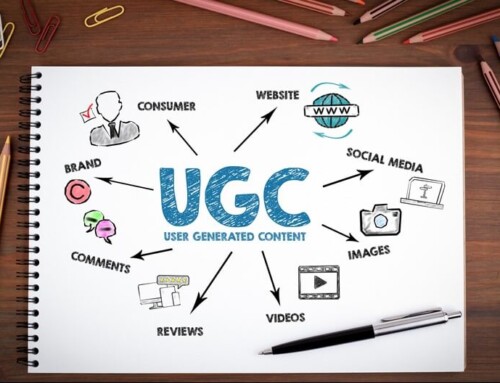There’s no special, single plan for success in sales and marketing. It’s not as easy as flipping a switch and suddenly turning into an expert salesperson. There are factors at play that are hard to define, and lots of different elements that may be responsible for a salesperson’s success or failure. Two people may have the same education, resources, and amount of sales experience, yet one of them ends up with far more sales than the other. This may seem perplexing, but there is another factor to consider: personality. It may seem obvious—sure, of course personality will play a part. But is it really that significant a factor? And why does it matter, anyway?
Why Personality is Important
Every business is more than their product; a product – no matter how good it is – most often is not enough to convince someone to buy it. This is what makes sales representatives important. Every representative is the face of his or her company to clients, giving personality to an inanimate product and business. A company’s brand and marketing strive to add personality to the business, but salespeople really drive it home. This is where a salesperson’s personality comes into play. A sales representative’s personality and attitude will shape the customers’ view of and feelings toward the product, company, and brand. The way a client feels about the rep they interact with will often determine the way the client feels about the company, as well as anything they sell, do or make. A sales representative’s personality, then, must give clients positive, confident feelings about the product or service they are considering. This raises an obvious question: what kind of personality traits make for the best salespeople?
Personality Traits to Pursue
It’s true that there are successful salespeople possessing certain traits that other successful salespeople lack. There isn’t exactly a formula that guarantees success or a perfectly-proportioned blend of personality traits that ensures consistently mind-blowing sales results. However, there are personality traits that tend to work in a salesperson’s favor, and these traits are worth nurturing.
- Drive Without Pushiness: Any good salesperson must have the drive to succeed. They must have the necessary motivation and ambition that can withstand failure. Obstacles do not crush the best salespeople, because a good sales rep has the internal determination to overcome any hindrance. However, that ambition must never reach a point of excessive aggression, since disproportionate pushiness will be interpreted as disrespect.
Pro tip:
If you want to learn how to improve the mental stamina or mental toughness of your sales team, look into the psychology techniques used in sports. These techniques can help sales people overcome the fear of failure (or rejection), master the art of confidence, and learn how to keep their composure when in the hot seat or under intense demands. - Charisma: General likeability is always an asset. It helps to be a people person, adept at interacting with others in a natural and friendly manner. Charisma is a hard trait to define, however, a kind of magnetism and allure that seems almost mystical. Some people just have it, the natural charm that makes people gravitate toward the charismatic individual.
Pro tip:
Charisma is not something that someone can learn…either someone is charming or they aren’t. However, if you understand how to be likeable to nearly everyone it will be easier to disguise a lack of charisma. How is this done? By understanding the buyer as well as what keeps them up at night and brings purpose to their life. This will require some research but can be well worth the effort. - Positivity: Clients aren’t looking for a glum, negative individual. Sure, the sales rep might run into some snags, but any obstacles or miscommunications should always be handled with positivity. Positivity helps clients feel both comfortable and confident.
Pro tip:
Staying positive requires a mindfulness of being positive. In other words, if the desire is to eliminate negative thoughts, perceived threats and pessimism among sales teams there must be a clear understanding of each representative’s emotional intelligence. These tests help to identify two things: strengths and weaknesses. Strengths can be leveraged so that these skills work to a representative’s advantage, while weaknesses offer opportunities to improve. Additionally, when used in conjunction – someone’s weaknesses might complement someone’s strengths which is where micro-teams consisting of 2-4 people can be highly effective. - Honesty: Positivity is important, but it doesn’t mean a sales rep should sugar coat everything. Clients don’t want a salesperson who dances around the issue, afraid of addressing difficult subjects. Even if the honest truth is something the customer doesn’t want to hear, a lie is never the answer. The best sales reps will be honest about any difficulties, while also working hard to address overcome these obstacles.
Pro tip:
Recent studies have demonstrated that most people, not just those in sales, use deception even if it a white lie, within the workplace. The number one reason a lie is told – fear of losing a job or losing a customer. One of the best scenarios managers can set up for teams is to welcome honesty, even if that means that losing a sale or customer. When the fear of termination is eliminated, sales teams will be more willing to be honest. Furthermore, post-sales customer check-ins should also address the issue of honesty in surveys, etc. - Competitiveness: The sales game is a competitive one, and the best salespeople play to win. Whether it’s in regard to other reps at the same company, or competing companies, the best reps are looking to outdo the competition. They want to provide better service, create better relationships, and reach better numbers.
Pro tip:
A little healthy competition never hurts in sales environments. However, if the only competition is around quotas, there may be significant missed opportunities to promote a more rounded (and healthier) competition that better represents the business or brand. For example, competitions, at the micro-level, can be on scoring the highest in customer satisfaction surveys, minimizing the need for post-sales support, earning repeat business, earning the most margin per sale, etc. Another way is to offer a larger motivator for top performers. This can be a non-cash incentive such as an all-expense paid trip to an exotic location as it not only rewards for positive outcomes but provides insights into new cultures and encourages conversation with prospects. - Confidence Without Arrogance: Part of a salesperson’s job is building customer confidence. The goal is to make a client confident that they’re making the right choice, assuring them that the product or service in question is truly beneficial to them. But a salesperson lacking confidence will have a hard time building confidence in his or her client. Sales representatives must possess confidence in the product or service they are selling, truly believing that what they sell is beneficial to their customers. However, this confidence must be balanced so that it doesn’t come across as arrogance.
Pro tip:
Better educated sales representatives as well as first hand experiences with products and services can do wonders for even the least confident sales representative. If confidence appears to be lacking, it could be a symptom that additional training is needed, or that it is time for management to step in and build confidence through encouragement. - Inquisitiveness: Sales is about relationships, and questions are a great way to build rapport. They show that your clients aren’t merely numbers on a page, but real people who you’d like to invest in. Of course, business questions are just as important as personal ones. The best salespeople aren’t afraid to ask questions—even tough questions—because questions produce answers, and answers are information. Sales reps want as much information as possible, knowledge that will help them better serve their clientele.
Pro tip:
Knowing the right questions to ask can be taught, and in other cases it comes from experience. This is where a combination of training and partnerships with experienced, top performers, can be helpful. Most top performers are rarely asked how they do what they do, but are more than willing to share if when inquiries are made. This combined with mentorship programs can be a powerful combination in helping sales teams learn the questions to ask – as well as helping them to refine their intuition as it related to the customer base.
Conclusion
There are plenty of variables when it comes to landing a sale, but a salesperson’s personality and behavior are a significant factor. Sales representatives do well to cultivate traits that help build relationships and earn trust. It is those personality traits that often help seal the deal and make the sale.
Are you looking to reward your top performers? If so, contact Gavel International to learn more about our travel incentive program.
This article was last updated on June 10, 2025
- Take Action on Organizational Values to Improve Company Culture - September 8, 2025
- Discover Hidden Gems in the Art, Culture and Outdoor Attractions in Dallas, Texas - August 25, 2025
- Create High-Quality Content Your Audience Truly Values - August 11, 2025






